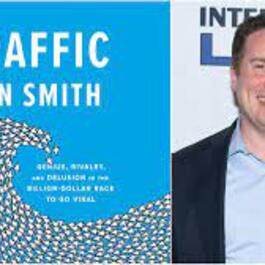
The Era of Social Media Journalism Is Over: A Conversation with Ben Smith
In the early 2000s, a significant media-business mistake emerged: the belief that website traffic is a commodity like oil, which would generate increased revenue as advertising improved. However, unlike other commodities, traffic lacked scarcity. The internet made traffic virtually infinite, posing challenges for new media-business models. In this podcast, Ben Smith, former founding editor-in-chief of BuzzFeed, former media columnist for The New York Times, and author of Traffic: Genius, Rivalry, and Delusion in the Billion Dollar Race to Go Viral, discusses the rise and fall of new media like Gawker and BuzzFeed, the impact and consequences of megaplatforms like Facebook and Twitter, and the shifting landscape of contemporary journalism. Smith examines the fluctuating trust in legacy news brands and the growing power of individual voices over faceless institutions, drawing parallels to developments in Hollywood, sports, and politics. Smith highlights the recent decline in both social media’s influence, and as a destination for news and information, and how this has led to more readers visiting homepages directly. He also emphasizes that conservative media outlets appear to have derived the most valuable insights from the social media era, adapting their strategies to thrive in the changing landscape. Looking ahead, Smith suggests that journalism must help beleaguered consumers navigate the vast information landscape by providing context and a clear voice. He speculates that this may involve a return to some of the principles of print journalism — concision and an editorial perspective — while adapting to the digital era’s demands. My conversation with Ben Smith:
From "Talk Cocktail"




Comments
Add comment Feedback